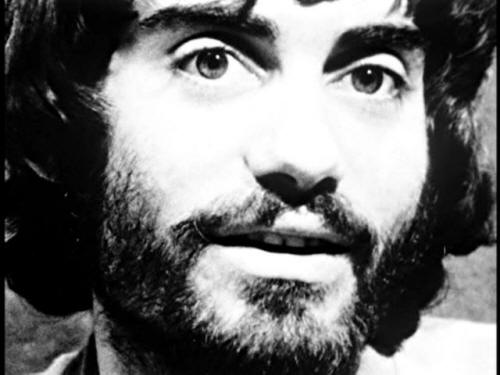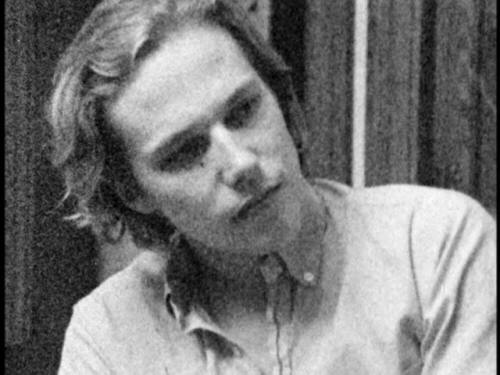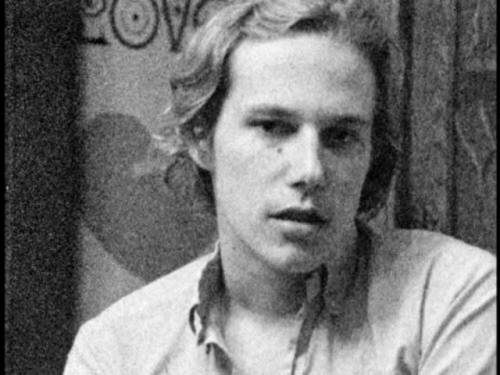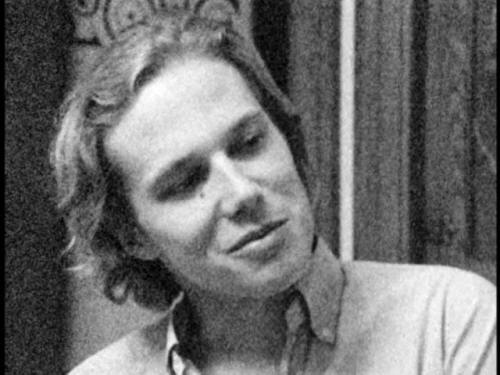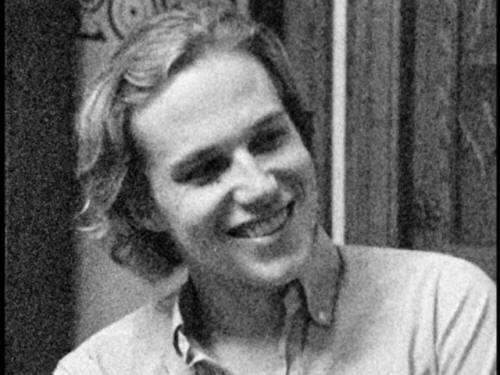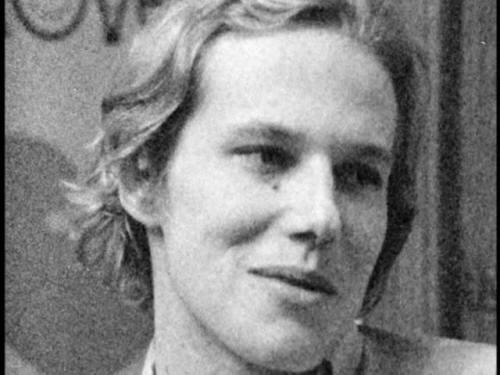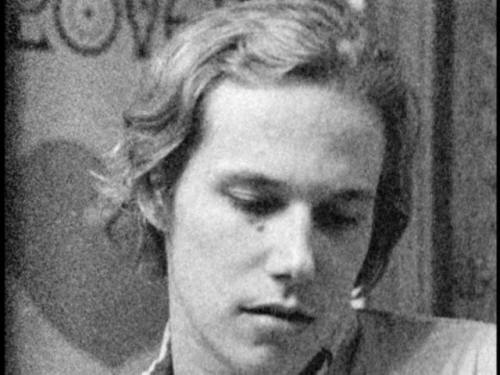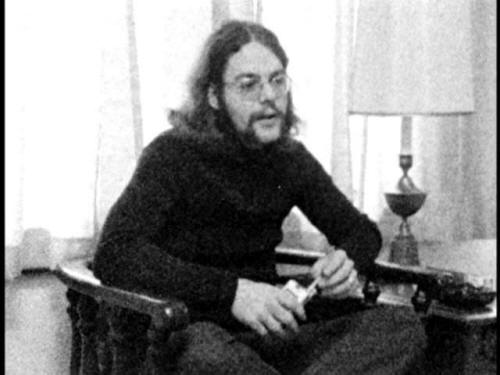|
Home WINTER SOLDIER -- ILLUSTRATED SCREENPLAY & SCREENCAP GALLERY |
|
SCOTT CAMILE: Well, when I came back from Nam, there were the draftees that were in my unit. And they thought all different than the way everyone else thought. And I talked with them, because I like talking with people. And they told me why they thought the war was wrong, and why we shouldn't go there, and why evading the draft isn't wrong. And I thought about it, you know. But I didn't really think it was right. And then I got into college. I started taking history courses, because I'm a pre-law major. And I had to take a lot of political science and history. And I started seeing things. And I couldn't believe things were like the books said. Like the Geneva Convention. It's okay that we didn't allow free elections, because if they would have had free elections, they would have been communists. And we couldn't let that happen. So it's okay. And I couldn't buy that kind of stuff. And it really started turning me. And I started thinking about everything in my past experiences, and relating them to what I was learning. And thinking about what we were really doing in Nam. You know, we weren't benefiting the people. The only thing we were doing over there was for our own economic gains and political power. It's like the balance of power being that close to China, you know, gives us a little more power on the scale. And the country wants as much as it can have. And we don't care about the people. And if they were somewhere else, like Czechoslovakia, we wouldn't interfere. Q. So all these experiences all of a sudden just started rushing back at this point? SCOTT CAMILE: Right. And I decided that all of the things I did wasn't really right, and that I should think of people as human beings, not as black or white or red, or even what their philosophies were. And sometimes when I talk about it, you know, I laugh all the time because, you know, I don't want people to think I'm not a man. And it's kind of the way I've been brought up again. You know, you're supposed to be a man, and men are hard and they don't have feelings and stuff. But when I think about it, it bothers me inside. And I know there's nothing I can do to change it so, you know, why let it bother me? So I don't think about it. Q. Has your concept about what a man is changed? SCOTT CAMILE: Yes. I don't any more, like I had some sensitivity courses, and it got where sometimes guys would cry. And, you know, sometimes I felt like crying. Like we'd really see a sensitive film, and get into something really deep, but I start to, and then I think about something else. So even though I know I shouldn't think of a man the way it is, I just can't change. I try to change, but I still try to be brave and hard and emotionless. Q. Do you want to change? SCOTT CAMILE: I think if I really wanted to change, I could. I'm just afraid that I'm not really sure what I want. But it's really hard when something you really have faith in, like a society, and to lose faith in it. It puts your head through some changes when you keep seeing things that look wrong, and more things that look wrong, and less things that look right. And you don't think you're really wrong. But then when you're talking to your family or someone, trying to find out really, and show them why you think the way you do, and they all say you're crazy, and how can you think like that? Then it upsets you. Then you go back to school, and you talk to people and they understand. I went up to the university in Western Carolina to speak on it, because when I do, it makes me feel better, you know. And I want other people to see, you know, what's going on. But when I went up there, and I showed it, they kind of put me on the spot. Like this woman asked me a question. She said, "Aren't you ashamed of what you did? And doesn't it make you feel bad that we're hostile towards you because of what you did?" And it really made me feel bad. So I reacted and I blamed it on her. I asked her how old she was. And she said she was 37. And I told her I was 19 when I went to Vietnam, and it was her fault because she was a crummy voter that I got sent there. And it was her fault that I had to go through all that shit. So I should be mad at her, and she shouldn't be mad at me. But it did upset me that when I tried to talk to the people, that they try to put you on the spot about it. And I'd like to let them know what's going on without being on the spot, because it bothers me sometimes. Q. But do you realize how hard it is, like even when you tell them what it's like, for people to understand? SCOTT CAMILE: I guess I should be able to. And I never thought about it until you just said it. I imagine it is hard for them. I can't perceive it being hard for me because I did it. I experienced it. And it's hard to experience something and not know how other people can't do it. Q. Scott, was it difficult for you to give testimony? SCOTT MOORE: Very difficult, very difficult. And I really wouldn't have done it if Mark Lenix hadn't showed up. But I realized it was very important, because he and I had been lieutenants together. And I realized it was very important to give testimony with him so we could corroborate our testimony. But hadn't he come, I don't think I would have given it. And I don't know why. Cause all of the other guys have gone through the same thing. But when I was on the stage, I was like really uptight. And I put myself in a mood where I'd be very very cold, and all that sort of thing, because I realized I'd probably start crying. Q. Why were you afraid to start crying? SCOTT MOORE: Because I'm still imbued with all that shit. It hasn't gotten out of my system. That's right. It takes a long time. And it's just a matter of dealing with it in terms of, you know, realizing it. And it won't come out at once, it comes gradually. And hopefully someday it will be gone. But, you know, it's still there. And I accept it. I realize it. Especially this weekend. You know, I saw a lot of guys who were in the same bag, man. And that's important, you know. Safety in numbers, I guess. But, you know, it will come. It's just a matter of realizing. And you have to realize fully what in fact you were taught. MARK LENIX: Scott was like I was. We were in the army. And we WERE the army, you know. That's the whole thing. And that's what's so scary. That's why it was so good to see Scott now, and see that he was really a human being again instead of being a soldier. Because now Scott has wants and needs and desires, when before it was all sort of rap and maybe it will happen one day, man. Well now I can see that things are starting to happen for both Scott and for myself. It's strange. Because we were definitely soldiers to the end. And that's what's so strange about it. That the indoctrination, the training, and things you have make you that way. And then when you see you were that way, that you were living a lie, you know, you weren't living your life, you were just living, I don't know, it's almost like a roadmap that someone had laid out in front of you. |
